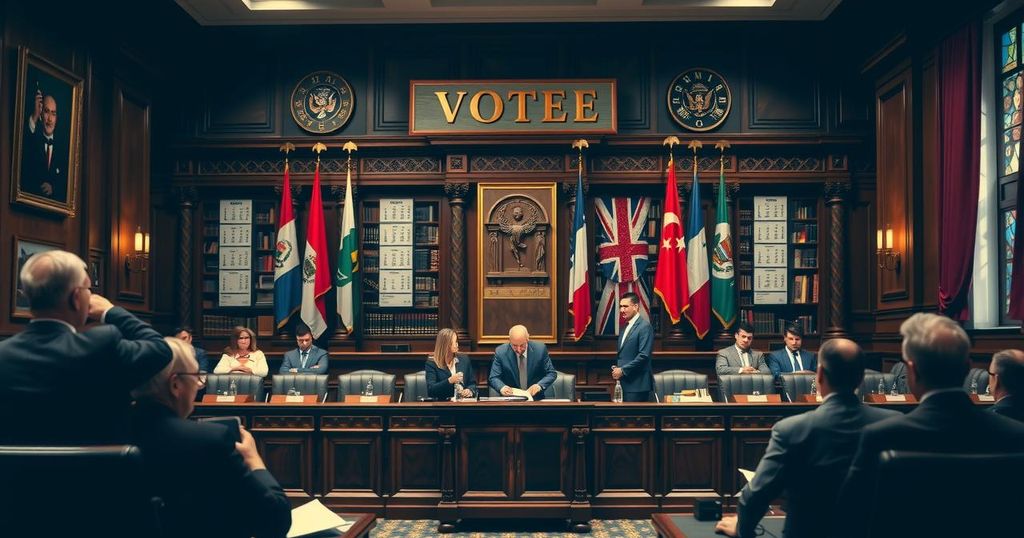World news
ANTISEMITISM, ASIA, AUSTELL, BENJAMIN NETANYAHU, CHRISTIANITY, CINDY, CINDYE COATES, DONALD TRUMP, ELECTION, EUROPE/ASIA, GAZA, GAZA STRIP, GEORGIA, ISRAEL, LEBANON, MARIETTA, MARJORIE TAYLOR GREENE, MICHAEL WHATLEY, MIDDLE EAST, NORTH AMERICA, STAN COATES, THREATS, TRUMP, TRUMP ADMINISTRATION, U.S. ELECTIONS, UNITED STATES, US, WHAT, WHATLEY
Jamal Abdullah
0 Comments
Conservative Christians, Israel, and the U.S. Electoral Dynamics
In the lead-up to the U.S. general election, Trump and Republican leaders work to secure conservative Christian voter support amidst complexities surrounding foreign policy and aid to Israel. Some conservative Christians express dissatisfaction with the party’s emphasis on Israel, advocating for a focus on domestic issues instead. Polling shows Trump’s strong support among evangelical voters, yet dissent exists, particularly among younger Republicans questioning extensive foreign aid. With election day approaching, the impact of these dynamics on voting behavior remains uncertain.
In a crucial lead-up to the United States general election, former President Donald Trump and Republican leaders have been actively working to solidify their support among conservative Christian voters. Events like “Believers for Trump” have aimed to mitigate lingering concerns regarding Trump’s moral character, which have persisted since his initial campaign in 2015. Reports indicate a decline in Christian voter turnout, prompting Republican officials to reassure attendees that the party remains committed to conservative Christian ideals. Michael Whatley, the chair of the Republican National Committee (RNC), emphasized the party’s alignment with pro-life, pro-family, and pro-Israel sentiments during a rally at a church in Austell, Georgia, a region with a significant conservative Christian demographic. However, some conservative Christians are voicing their discontent with the Republican focus on unwavering support for Israel amidst ongoing conflict in the Middle East, where substantial loss of life on both sides has sparked critical conversations about U.S. foreign policy. Attendees such as Cindye and Stan Coates, a pastor and musician duo from Marietta, expressed frustration over the Republican Party’s stance on Israel, questioning the need for such support if the party is genuinely advocating for an ‘America First’ approach. This sentiment reflects a growing faction within the religious conservative community that prioritizes a focus on domestic humanitarian needs over foreign military aid, including support for Israel. Polling data reveals Trump’s dominance among various Christian demographics, with white evangelical Protestants showing overwhelming support. Yet, there exists a nuanced perspective within this group, as some indications reveal dissent toward the unconditional financial backing of Israel, particularly among younger Republican voters. Conversations surrounding aid to foreign nations like Israel and Ukraine are increasingly common, with some questioning the rationale behind extensive financial commitments abroad when domestic issues remain pressing. Despite concerns expressed by some voters, Trump continues to position himself as a staunch advocate for Israel, underscoring his administration’s historical actions, including embassy relocations and military support. RNC officials echoed sentiments of unchanging Republican values regarding Israel, insisting on the importance of such support. The Faith and Freedom Coalition has pledged vigorous efforts to mobilize Christian voters in the election, while asserting a firm stance against perceived Democratic opposition to Israel. As the election date approaches, there remains uncertainty surrounding the influence of these discussions on conservative Christian voters’ alignment with the Republican Party, particularly regarding its Israel policy and the broader implications for domestic and international priorities among the electorate.
The relationship between conservative Christians, the Republican Party, and U.S. support for Israel has been a long-standing topic of discussion, particularly in the context of elections. Traditionally, evangelical Christians have maintained strong support for Israel, grounded in both theological beliefs and political affiliations with the Republican Party. The dynamics around U.S. foreign policy, especially concerning military aid and political support for Israel amid ongoing conflicts, have introduced complexities to this relationship. The growing discontent among certain factions within the conservative Christian community highlights a potential shift in priorities that may influence electoral outcomes.
In conclusion, the upcoming U.S. general election poses critical questions regarding the alignment of conservative Christian voters with the Republican Party, particularly concerning its unwavering support for Israel amidst pressing humanitarian issues both domestically and internationally. While traditional support for Trump remains robust, emerging dissent on foreign aid policy and advocacy for ‘America First’ principles suggests a potential reevaluation of priorities among this influential voter base. As the election approaches, how these sentiments translate into voting behavior remains to be seen.
Original Source: www.aljazeera.com




Post Comment